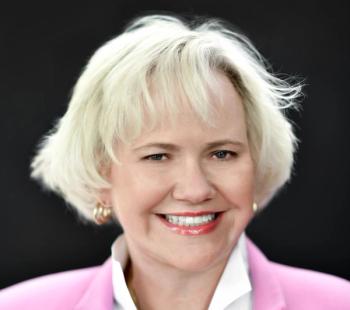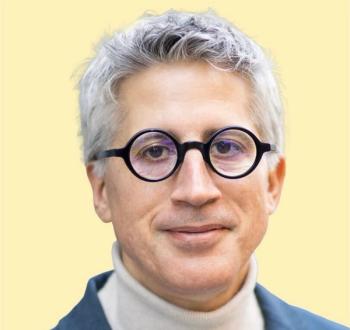
How Inova Health System plans to use $75M gift to expand cardiac care
The northern Virginia system has high hopes for the donation. Shashank Desai of Inova talked with us about improving care and expanding prevention efforts.
As Shashank Desai sees it, a $75 million donation to Inova Health System’s heart program offers the rare opportunity to transform cardiovascular care in the Washington, D.C. region.
Dwight Schar, founder of NVR, one of the nation’s largest home builders, and his wife, Martha, announced the donation of $75 million in May. The institute was renamed in their honor.
Desai, director of strategy and growth at Inova Schar Heart & Vascular, tells Chief Healthcare Executive® that it’s a tremendous opportunity and a humbling one. With such a tremendous gift, Schar says he recognizes the responsibility to make the most of it.
“I think there was excitement but then there was a little bit of angst among us,” Desai says.
Nonetheless, Desai speaks with unbridled enthusiasm when he talks about the chance to expand treatment options and offer more preventive care to help people before they suffer a serious cardiac event and require a long hospital stay.
Desai says the gift offers the promise of attracting more talent and expanding sorely needed services in Washington, D.C. and northern Virginia. Inova operates five hospitals and scores of care sites and is the largest nonprofit healthcare system in northern Virginia.
‘Real cardiovascular prevention’
The Schars also previously donated $50 million to Inova’s cancer center in 2015, and Desai said that gift helped expand oncology services and helped really put the institute on the map.
Desai looks forward to expanding cardiac care in a number of ways, and he’s hoping to see greater efforts in helping patients avoid a heart attack.
“We've been talking about bringing real cardiovascular prevention in an organized fashion to this community,” Desai says.
He says that’s a major value proposition of the gift, to support preventive services and “preventing the heart attack, not treating it once it’s here.”
Inova will be looking at expanding preventive services in a number of ways, including programs aimed at women. Heart disease is the number one killer of women, according to the
“Women's prevention is such an interesting topic, because women who go through a phase of obstetrics where they are delivering and they have some risk factors, some high blood pressure, some preeclampsia, some problems with the pregnancy, some high blood sugar, have now all been recognized that 30, 40 years later. they're going to be at the highest risk for cardiovascular disease. An opportunity to prevent in that space is one that we've not taken advantage of,” Desai says.
Prevention efforts should be targeted to women in menopause, he says.
“Menopause is a moment where women need to interface with cardiovascular prevention doctors, because it is a time where they have a high inflection of the development of cardiovascular disease,” he says. “We can really kind of turn things around.”
He also sees potential in expanding heart failure genomics, with a particular emphasis on the genomics of lipids that can lead to heart problems. “There is an entire world of lipid genomics, and we've invested in a moderate-size genomics program, but it needs to explode into this space,” he says.
There’s also room to do more with cardio-oncology and “preventing cardiovascular disease in patients who are getting chemotherapy,” Desai says.
“Prior to 10, 15 years ago, we would just wait for the patients who got chemotherapy, and once their heart got fully damaged, I would see them and say, ‘Oh my goodness, you need a heart transplant.’ But how do we prevent that?”
Desai says he hopes to see these prevention efforts, along with stroke prevention and other outreach efforts, all under one umbrella.
Inova is also soliciting ideas from clinicians and staff throughout the organization for projects to improve care and outreach. Desai says staff have submitted more than 70 proposals, and the top recipients will get funding.
“It's not going to be a top down expenditure,” he says.
“These bright ideas are things that six of us sitting around a cabinet table would not be able to come up with,” he adds. “So it's been a fantastic experience.”
Attracting top talent
As Inova expands its heart program with the $75 million gift, Desai says the system will be looking to recruit more top physicians. He sees the gift as a major incentive to help attract and keep good doctors, particularly as
Talented doctors want to go to health systems with financial stability, he says.
“If you go to a place that is so strapped and potentially bankrupt, no matter how great of an idea you have, if you can't implement it, it's not a place that young, new, fresh, energetic people want to go to,” Desai says.
He says that’s one of the big values of the $75 million, beyond being able to invest in more technology and services.
“The health system is not the building,” Desai says. “It is clearly the quality of individuals that we can attract. And once you start attracting, it's really just a form of feedback loop and it just snowballs. It gets bigger and bigger and bigger.”
Desai has seen tremendous growth at Inova since he joined the system in 2006. He was Inova’s first heart failure cardiologist, and was the only one in the system for three years. He recalls the effort he spent working to recruit others to come to Inova.
Now, Inova has 14 heart failure transplant doctors in the system. And Desai says he has difficulty keeping up with all of the applicants who are looking for a spot at Inova. As more top people come to Inova, Desai says the energy and enthusiasm grows.
“I think it makes it a place that you want to dedicate your time, energy and effort to,” Desai says, adding, “You see this with the satisfaction of the people that come here, the patients that come here.”
The expansion of cardiac care services is badly needed in Washington, D.C. and northern Virginia, he says. The Philadelphia area, just a couple hours away, boasts five heart transplant programs, while there are only two in the Washington area, he says. Baltimore has more health systems.
Compared to other large cities in the Northeast, Desai says, “This is an underserved area.”
“We will be able to invest and build into spaces that we currently do not have, and that currently, the entire D.C. metropolitan area don't have,” he adds.






















































































